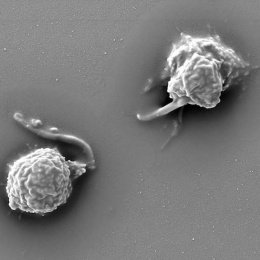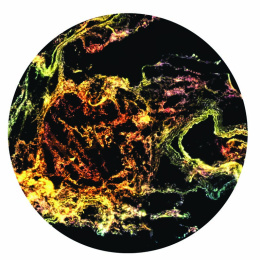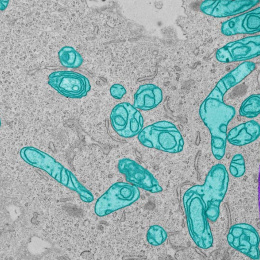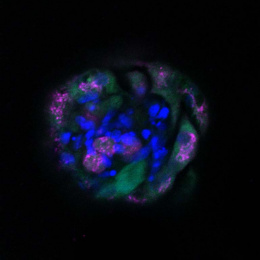Malaria Sporozoites vs. Natural Killer Cells 4
Malaria Sporozoites vs. Natural Killer Cells 4
Allison Demas, David Mankus, Margaret Bisher, Abigail Lytton-Jean
Koch Institute at MIT, Institute of Medical Engineering and Science, Ragon Institute of MGH, MIT, and Harvard
Malaria is transmitted to people through the bite of an infected Anopheles mosquito. With its bite, the mosquito injects infective parasites, known as sporozoites, into the skin. These sporozoites quickly migrate to the liver, where they invade liver cells, known as hepatocytes, and begin to grow and multiply. In their journey from the skin to the liver, sporozoites come in contact with the human body’s innate immune defenses. How do these immune cells fight back? Do antibodies, either from previous infection or vaccination, modulate these defenses?
These images show malaria sporozoites interacting with a human natural killer (NK) cells directly, as well as NK cells in various states of activation in response to the parasite. These interactions are dependent on antibodies that recognize the sporozoite and promote NK cell activation and function.






